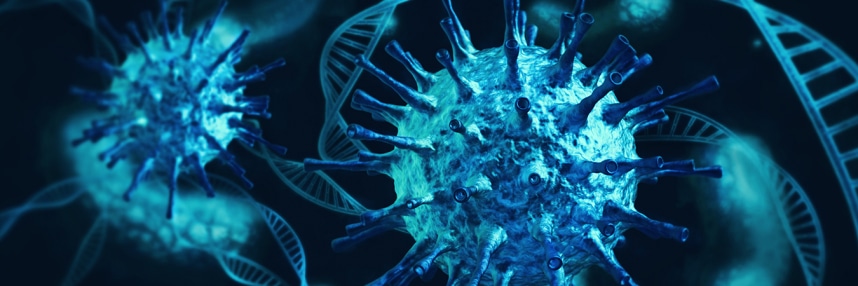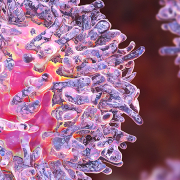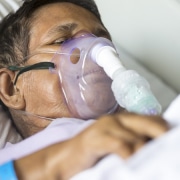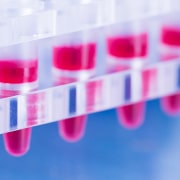Covid-19: susceptibility and the genome
An international collaboration has discovered new links between our genome and the variable onset and severity of Covid-19
Since the early days of the Covid-19 pandemic, it has been clear that the disease can have profoundly different effects in different people, and that the difference cannot be fully explained by known risk factors such as age.
To understand why the same infection can be completely asymptomatic in one individual and life-threatening in another, we look to results of a new international study that has found answers within the genome.
A worldwide initiative
The COVID-19 Host Genetics Initiative, founded at the University of Helsinki, is one of the largest collaborations in human genetics research, and is worked on by over 3,300 researchers across 165 projects in 25 countries. UK contributors include the GenOMICC study, UK BioBank and the 100,000 Genomes Project.
The initiative undertook a large genome-wide association (GWAS) study, including 50,000 Covid-19 patients and a control group of 2 million unaffected people. Because of the size of the dataset, as well as the diversity of populations included, they were able to draw statistically robust conclusions.
“We’ve been much more successful than past efforts in sampling genetic diversity because we’ve made a concerted effort to reach out to populations around the world,” said Institute for Molecular Medicine Finland (FIMM) director, Dr Mark Daly.
Identifying loci
The study identified 13 areas of the genome (known as loci) with strong associations with Covid-19.
The researchers divided the participants into four groups:
- Control: those confirmed to not have Covid-19;
- Infection: those confirmed to have Covid-19;
- Hospitalisation: those confirmed to have Covid-19 who were hospitalised with moderate to serious symptoms; and
- Critical illness: those confirmed to have Covid-19 who became critically ill, meaning that they required respiratory support or died.
By comparing these groups, the researchers identified four loci that affected susceptibility to the disease (how likely a person is to become infected) and nine loci that affected the severity of the disease once an individual was infected.
Of the 13 loci identified, seven confirmed previously reported research, and six were new findings. Importantly, two of the newly discovered loci were only detectable when datasets from East Asian populations were included, showing that the study’s focus on diversity was well-founded.
Finding interventions
Once these loci were identified, the researchers started looking at the genes in these regions of the genome, to try to understand how they connect to the biological processes involved in Sars-CoV-2 infection. Over 40 candidate genes were identified, including some already associated with increased susceptibility to infection, or lung disease.
By understanding the mechanisms by which these genes affect disease progression, the researchers hope to identify interventions to reduce disease severity.
“We’d like to aim to get a good handful of very concrete therapeutic hypotheses in the next year,” Dr Daly said. “Realistically, we will most likely be addressing Covid-19 as a serious health concern for a long time. Any therapeutic that emerges this year, for example from repurposing an existing drug based on clear genetic insights, would have a great impact.”
The initiative plans to perform further GWAS studies to look for genetic factors affecting susceptibility to long Covid.
Want to learn more about the genome’s effect on Covid-19? Read our blog article: Covid-19: what’s in the genes?
–









